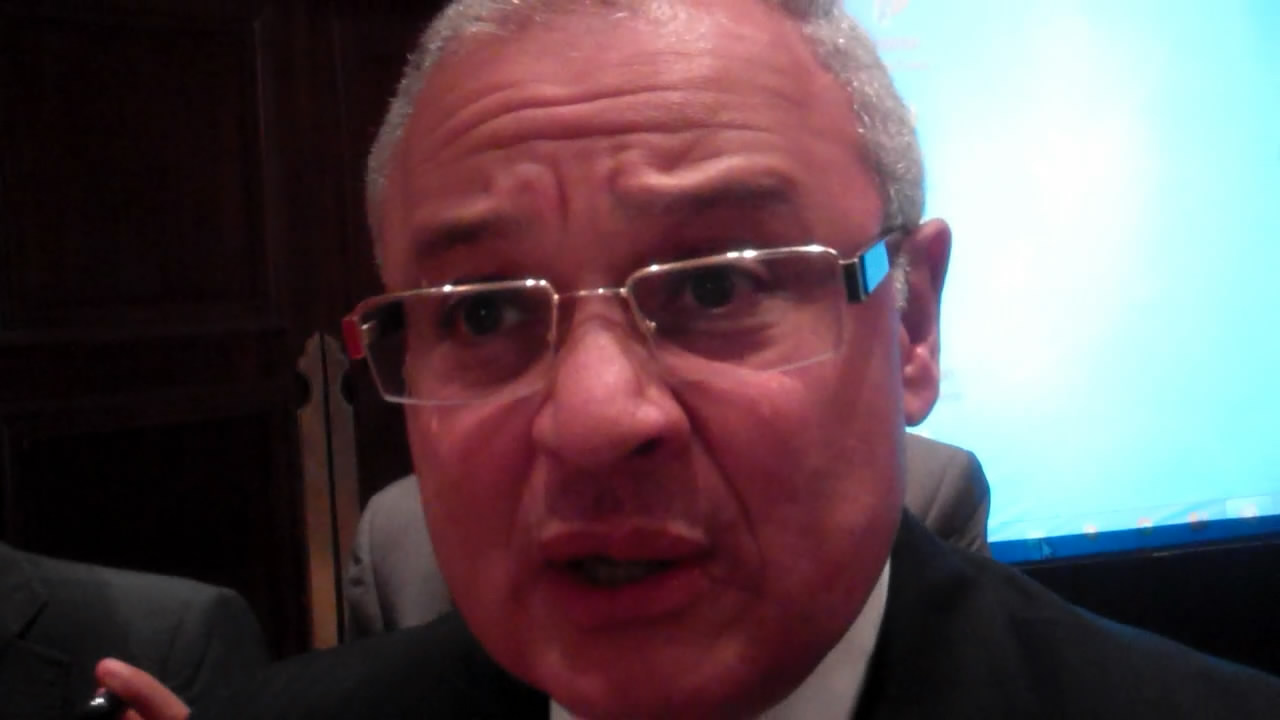Latest NEWS
- Aswat Masriya, the last word
- Roundup of Egypt's press headlines on March 15, 2017
- Roundup of Egypt's press headlines on March 14, 2017
- Former Egyptian President Hosni Mubarak to be released: lawyer
- Roundup of Egypt's press headlines on March 13, 2017
- Egypt's capital set to grow by half a million in 2017
- Egypt's wheat reserves to double with start of harvest -supply min
- Roundup of Egypt's press headlines on March 12, 2017
Egypt to lose billions if flight suspensions continue

Tourism Minister Hisham Zazou - Aswat Masriya
CAIRO, Nov. 12 (Aswat Masriya) - The ramifications on Egypt's tourism sector of the Russian jet crash late October have been colossal politically, but the economic toll of the incident is a more immediate concern with projections of billions of pounds in lost revenue.
Tourism was slowly inching towards recovery when 224 passengers and crew were killed after a Russian charter flight heading to St. Petersburg exploded in midair 23 minutes after taking off from Sharm El-Sheikh airport only to land in smithereens across over 13 square kilometers of desert in the Sinia Peninsula.
The horrific incident triggered swift reactions globally, including flight suspensions, amid theories that have not excluded sabotage by Sinai-based militants who may have planted a bomb on the plane. An on-going investigation has yet to announce preliminary results.
Tourism Minister Hisham Zaazou said Wednesdy that Egypt will lose EGP 2.2 billion ($281 million) monthly if the UK and Russia sustain the flight interruptions to Egypt in the aftermath of the crash.
Zaazou said that the tourism sector relies heavily on Russian and British tourists who constitute 66 percent of visitors to Sharm el Sheikh, while Russian tourists alone account for 52 percent of tourists in Hurgada.
The UK suspended their flights back and forth from Sharm El-Sheikh when intelligence information relayed to British Prime Minister David Cameron that "it's more likely than not" the plane was downed by a bomb.
Investigation and analysis of the black boxes are yet to reveal the causes of the crash.
Russia had initially described the UK's move as "shocking" while Egypt described it as "premature".
But after a phone call between Cameron and Russian President Vladimir Putin earlier this week, Russia suspended all its flights to Egypt including Cairo, with a Kremlin spokesman confirming that the UK had passed on "certain data" to Russia about the plane crash. This information was not shared with the Egyptian security apparatus, according to Egypt's foreign ministy spokesman.
The crash threatens a tourism sector that accounts for 11.3 percent of Egypt's national income and is responsible for generating nearly one fifth of the country's much-needed foreign currency reserves. The impact of the incident is all the more poignant as it comes less than 50 days after the "accidental" killing of eight Mexican tourists which Egyptian security forces say they had mistaken for militants in al-Wahat area in the Western desert.
To deal with the crisis, the Egyptian cabinet agreed to allocate $5 million to support the sector. The ministry has also launched a massive campaign to promote internal tourism to kick off next week under the slogan "Sharm El-Sheikh in our hearts".
The promotion, which continues until next April, includes discounted four-day holiday offers to Sharm by plane at a fraction of their ordinary price in the high season, with half board per person at a four star hotel costing between EGP 1,200-1,400. The price is slashed by half for visitors who choose to travel by bus, according to Sami Mahmoud, head of the Tourism Development Authority.
Zaazou blamed blamed the negative American and British media for adopting the theory that militants had downed the plane, effectively dealing a heavy blow to the sector.
He also said that security procedures in Egyptian airports follow international standards but the government agreed to "send an additional message to our partners abroad" to address concerns regarding airport security especially after "the negative approach" by international media outlets in this regard.
British media has reported on grave security breaches with claims that airport staff can be bribed to help travellers skip queues. The Guardian reported last week that a specialist British team of aviation security and military experts have been enlisted to improve security at Sharm el-Sheikh airport, focusing on three issues: the security of the aircraft, the screening of staff and passengers and the screening of luggage.
Islamic State affiliates in Egypt's North Sinai have twice claimed responsibility for downing the plane. In the second statement the group reiterared that the attack was in retaliation for Russia's involvement in fighting Islamic State (ISIS) fighters in Syria and Iraq, and that it comes exactly to mark one year after the group pledged allegiance to ISIS.
The group didn't announce the mechanism used to down the plane and that it will reveal it "in it's own time".










